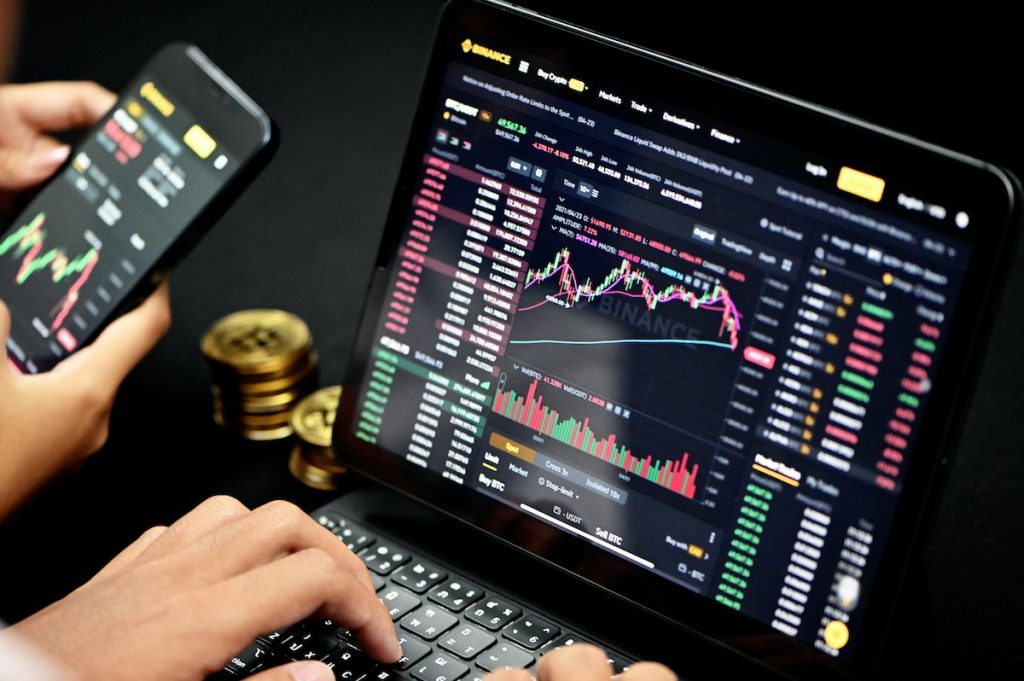Investing and trading are two different approaches that can be used to make money in the financial markets. Both have advantages and disadvantages, so it’s essential to understand the difference before deciding which one is right for you. The goal is always the same: to make a profit.
The time frame
Investors are typically looking to make money over the long term, so they are more interested in buying assets that will appreciate over time. It could be a property, a portfolio of stocks or even a business. Trading, on the other hand, is all about making money over the short term. Traders are more likely to buy and sell assets within a day or week, and their goal is to profit from the price movements.
The risks involved
Investing involves taking on more risk than trading, as you’re investing in an asset for the long term, and you’re less likely to sell it if the market takes a downturn. Your investment could lose value in the short term, but you’re hoping it will recover and grow in the long term. On the other hand, trading is less risky as you’re only looking to profit from short-term price movements. You can get out of a trade quickly if the market moves against you.
The costs involved
Investing can be costly, as you may have to pay fees to a financial advisor or broker. You’ll also incur costs when buying and selling assets, such as stamp duty on shares and investment platform fees. Trading costs are typically lower, as there are no advisory fees, and you can often trade commission-free. However, you will still have to pay platform fees and spreads (the difference between the buy and sell price).
The level of expertise required
Investing requires more significant expertise than trading, as you need to understand the asset you’re buying and the factors that could affect its price. You also need to be able to research different investments and make sound decisions about where to put your money. Trading is less complex, as you’re simply trying to profit from price movements. However, you still need to understand the financial markets well and how they work.
The amount of time required
Investing takes more time than trading, as you may need extensive research before investing. Once you’ve invested, you’ll also need to monitor it regularly to see how it’s performing. Trading is a more operative form of investing, and you’ll need to spend more time monitoring the markets and placing trades.
The psychological effect
Investing can be psychologically demanding, as you often put a lot of money into an asset and wait for it to appreciate. It can be stressful, especially if the market takes a downturn. Trading is less psychologically demanding, as you only want to make small profits from each trade, meaning that even if you lose money on some trades, you can still make a profit overall.
Your goals
Another difference between investing and trading is your goals. Investors typically have long-term goals, such as retirement planning or saving for a child’s education. They’re more interested in buying assets that will grow over time. On the other hand, traders are more focused on short-term goals, such as making money to pay the bills. They’re more interested in buying assets that they can sell quickly for a profit.
Your attitude to risk
Investors are typically more risk-averse than traders, as they want to protect their investments and make money over the long term. They’re often more willing to buy less risky assets, even sacrificing potential returns. On the other hand, traders are more willing to take risks in pursuit of higher profits. They’re often more comfortable with volatile assets as they know they can sell them quickly if the market moves against them.
The amount of money you need to start
Investing requires more money than trading, as you’re buying assets you plan to hold for a long time, meaning you’ll need to have enough money to cover the costs of buying and selling and any fees. Trading can be done with less money, as you only want to make small profits from each trade, meaning you can start trading with less capital.

